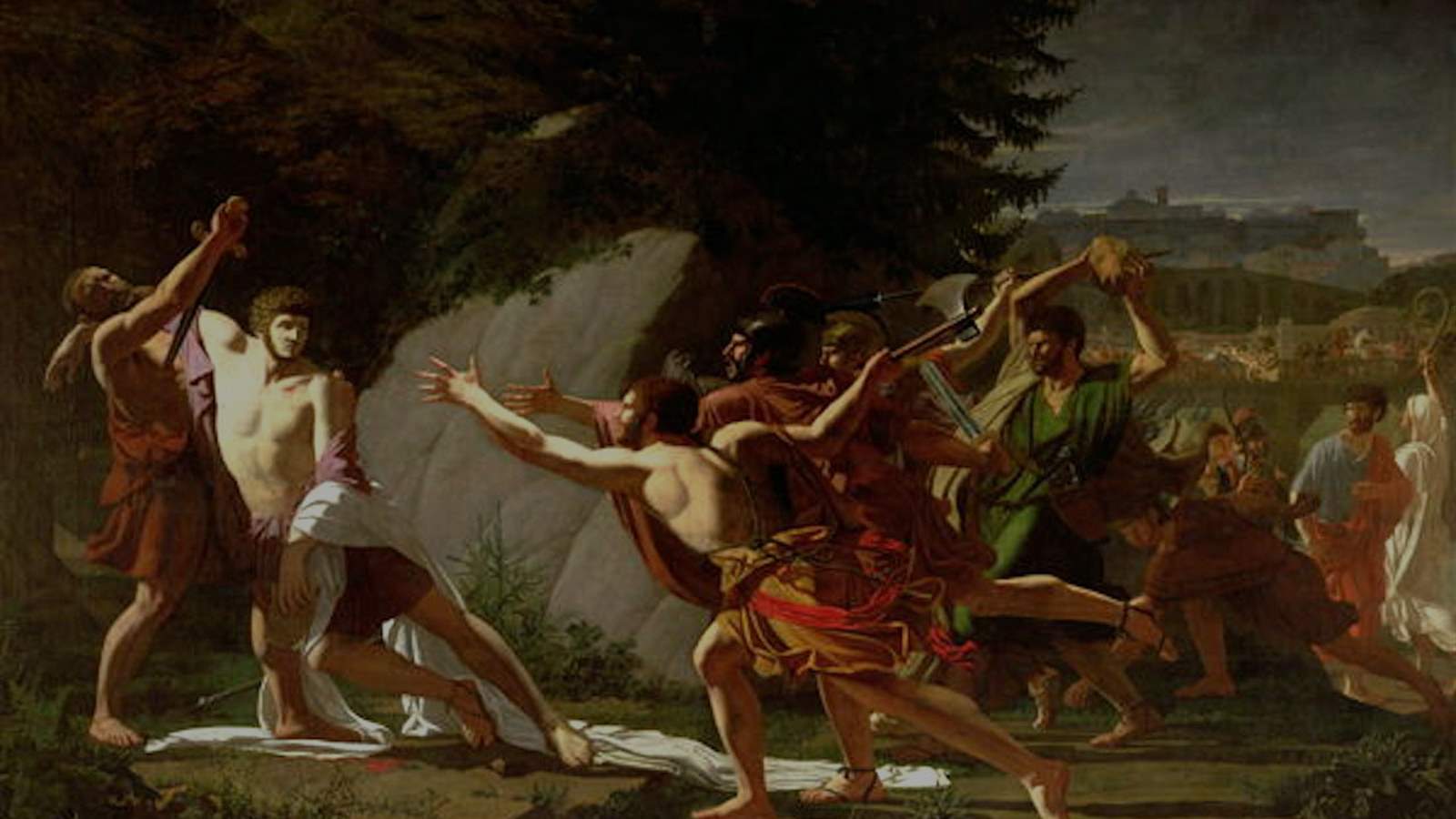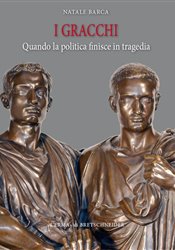I GRACCHI.
Quando la politica finisce in tragedia.
The "Gracchan age" (133-121 BC) was brief, but recorded a profound change in the public life of Rome, with reference to the construction of consensus, the conception of power relations, the use and distribution of wealth.

Preface of Federico Santangelo (*)
Professor Santangelo, in his preface to "I Gracchi", highlights how the ancient authors, Plutarch and Appian, are not only chronologically distant from the events but also ideologically and politically.
"It is precisely the political character of the Gracchi story - he writes - that periodically solicits its re-reading according to historical and historiographical circumstances. The modern interpretations of the Gracchi, even in recent years, are inevitably informed by different conceptions of the relationship between historical change and conflict and Natale Barca has dedicated a study to this complex field of events and problems. This book offers the reader a rich repertoire of tools to orient themselves in ancient documentation and in the main modern debates."
He adds: "Whoever knows Barca's previous works, especially the book on the nineties and eighties of the first century BC (Blood calls blood, 2016) and Mario's biography (Gaius Mario, 2017), will recognize the ambition to combine a biographical discussion, analysis of the overall historical context and a wide-ranging narrative.
"It is precisely the political character of the Gracchi story - he writes - that periodically solicits its re-reading according to historical and historiographical circumstances. The modern interpretations of the Gracchi, even in recent years, are inevitably informed by different conceptions of the relationship between historical change and conflict and Natale Barca has dedicated a study to this complex field of events and problems. This book offers the reader a rich repertoire of tools to orient themselves in ancient documentation and in the main modern debates."
He adds: "Whoever knows Barca's previous works, especially the book on the nineties and eighties of the first century BC (Blood calls blood, 2016) and Mario's biography (Gaius Mario, 2017), will recognize the ambition to combine a biographical discussion, analysis of the overall historical context and a wide-ranging narrative.
There is, more generally, the intent to offer an overview of the historical history of the 'imperial republic' between the second and first centuries BC ".
"It is precisely through a pluralistic and non-insular perspective - he concludes - that we can consider and appreciate the reasons that lead us to recognize important original characters in the Gracchan age, and to critically reflect on the many aspects of this historical event that continue to require deepening and debate".
____________
(*) Federico Santangelo is Professor of Ancient History and Director of Research at the School of history, classics and archaeology of Newcastle University, and review editor of "Histos" (www.histos.org).
"It is precisely through a pluralistic and non-insular perspective - he concludes - that we can consider and appreciate the reasons that lead us to recognize important original characters in the Gracchan age, and to critically reflect on the many aspects of this historical event that continue to require deepening and debate".
____________
(*) Federico Santangelo is Professor of Ancient History and Director of Research at the School of history, classics and archaeology of Newcastle University, and review editor of "Histos" (www.histos.org).
Information

The "Gracchan age" (133-121 BC) was brief, but recorded a profound change in the public life of Rome, with reference to the construction of consensus, the conception of power relations, the use and distribution of wealth.
| Pages | 326 |
| Publisher | L'Erma di Bretschneider, Roma |
| Year | 2019 |
| Language | Italian |
| ISBN-13 | 9788891318107 |